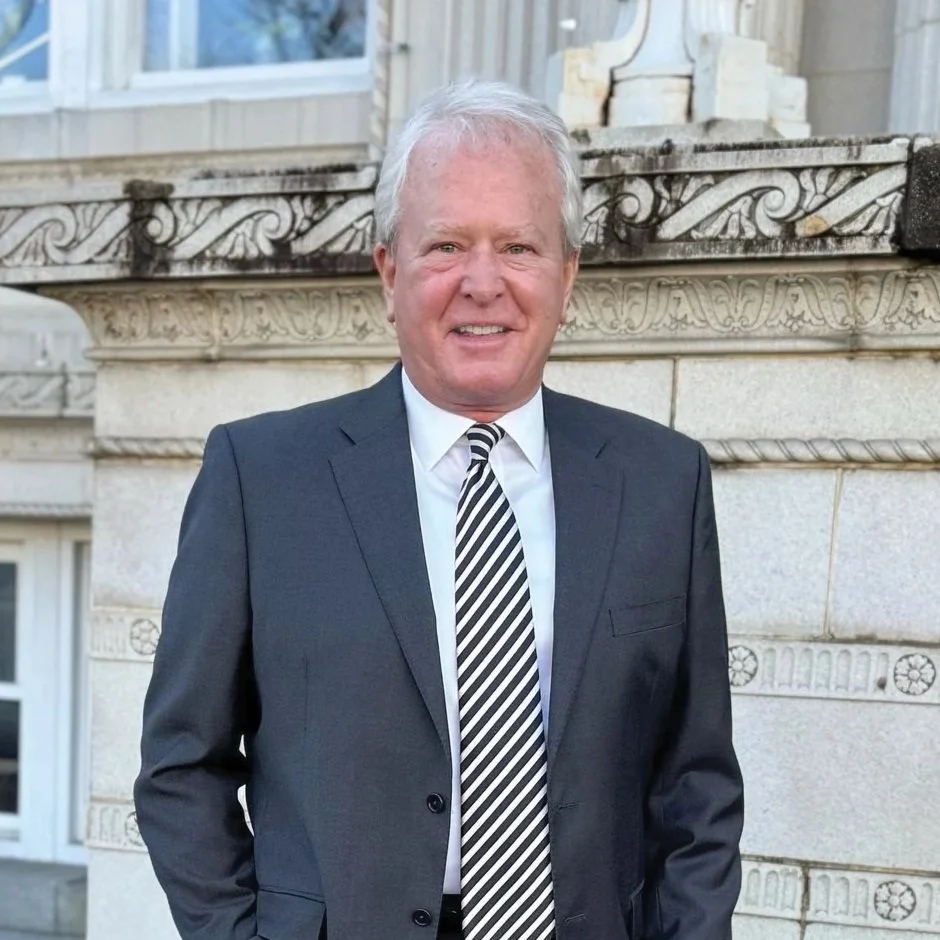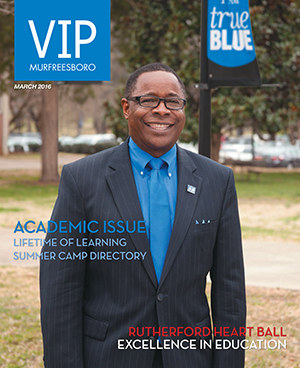VIProfile: Daryl Chansuthus
/Executive Director of WRAP
Daryl Chansuthus
Giving Hope.
Ending the Violence.
Building Safer, Healthier Families.
Story by Lyda Kay Ferree, The Southern Lifestyles Lady. Photography by Woody Woodard.
Daryl Kennedy Chansuthus is the Executive Director of WRAP, a dual domestic violence/sexual assault program serving 19 counties in West Tennessee. Daryl has served in public leadership positions since 1991 when she was appointed Director of the Center for Management Communication at the Sasin Graduate Institute of Business Administration in Bangkok, Thailand. In Tennessee, Daryl served as Executive Director of Performance and Quality Improvement for the Tennessee Department of Children’s Services, as Executive Director of the Tennessee Center for Child Welfare at Middle Tennessee State University, and as a consultant to Children’s Rights, a national child advocacy group, before joining WRAP in 2013.
Daryl is a Licensed Advance Practice Social Worker with a Master of Arts from Middle Tennessee State University and a Master of Science in Social Work from the University of Tennessee at Knoxville. She has also completed a leadership development program at The Wharton School and is a graduate of Leadership Jackson. She is currently the President of the Jackson Area Business and Professional Women’s Association and interim Chair of the State Sexual Assault Prevention Committee. Daryl serves on the Steering and Executive Committees of the Safe Hope Center and on the Boards of the West Tennessee Continuum of Care and the University of Tennessee at Martin Jackson Center. She is the Coordinator for the Jackson-Madison County Sexual Assault Team and is a member of the Jackson Mayor’s Council on Domestic and Sexual Violence and the Tennessee Chapter of the Network for Social Work Management.
Daryl loves learning and exploring, taking long walks, reading, and writing poetry. She also loves spending time with her family. She is the proud mother of five and grandmother of four.
VIP: Where were you born? When did you move to Jackson?
Daryl Chansuthus: I was born in Florida, and my family is from South Carolina, but my parents moved to Nashville when I was 3, and I have lived there for more than 40 years. I moved to Jackson in December 2012.
VIP: What do you enjoy about living and working in Jackson?
DC: Jackson is a warm and welcoming community. The people here are gracious and hospitable, kind and giving. Some of the nicest people I know are right here in Jackson, TN. I also like living in Jackson because it is a growing city but not crowded like Memphis or Nashville. I think of it as “country urban.” You have the benefits of country life plus the cultural advantages that you get in urban cities—symphony, ballet, Poet’s Night and a very active arts community. Those are all very important to me. Also, there are a lot of natural attractions in Jackson.
If you want heavy urban, you are 1 ½ hours from Memphis and 2 hours from Nashville. To me, Jackson offers the best of everything. Jackson is just right!
VIP: What might our VIP readers not know about you?
DC: That I lived 17 years in Bangkok, Thailand; speak, read, and write in Thai; and cook a wide variety of Thai food.
“WRAP’s mission is to help victims— who are mostly female, many with children—get out of their abusive situations, get back on their feet, and build safer, healthier futures….”
VIP: Share a short history of WRAP.
DC: WRAP was established in the mid-1970s, 41 years ago. It was started by Mary Reed and two other women who took up donations to pay for a crisis line for rape victims. It was incorporated in 1976 and in the 80s started to grow, expanding to serve both domestic violence victims and victims of sexual assault. Currently we are serving 19 counties in West Tennessee.
WRAP’s mission is to help victims—who are mostly female, many with children—get out of their abusive situations, get back on their feet, and build safer, healthier futures for themselves and their families. To make this happen, WRAP uses an evidence-based practice model for community-based advocacy. WRAP also maintains three safe homes and provides a 24/7 crisis line, court and hospital advocacy, counseling and therapy, case management, resource linkage, transportation, utility deposits and rental assistance. All of WRAP’s services are free of charge.
VIP: What are your chief duties as Executive Director of WRAP?
DC: My job is to work closely with my incredible board to make sure we have the funding we need to operate and to make sure that my 23-member team has the resources and the support that they and the survivors need to achieve positive outcomes. Survivors are at the top of our pyramid. Their success is our success. Success in this case means that survivors have achieved the safety that friends and family, community support, living wages, and safe, affordable housing can provide for them and their children. When these things are achieved, victims don’t just survive; they and their children thrive.
VIP: What are your greatest challenges and most important needs at present?
DC: Community funding is our greatest challenge. Our grants pay for only 80 percent of what we do. So the remaining 20 percent must come from the community.
VIP: Describe a typical day at the WRAP office or is there a typical day?
DC: That’s a very interesting question because there isn’t one. We’re all on a 24-7 schedule. Our advocates work very hard during the week, and every situation is different. For example, just in the last two weeks, advocates have worked with a pregnant, severely disabled survivor; an autistic survivor; and an elderly survivor. All three had experienced significant trauma and had high level needs, requiring skill and teamwork from our advocates and collaboration with our community partners. Our advocates also rotate crisis on-call evenings and weekends. Some advocates handle the crisis line. Others do shelter intake while some go to the hospital to be with victims of sexual assault. Calls for help come in at all hours, and, since July 1, 2016, WRAP advocates have responded to more than 2,000 of these calls and have assisted almost 2,000 more with residential or outreach services, providing almost 7,000 hours of service.
VIP: What are your top priorities at WRAP at present?
DC: To continue to provide the best service possible toward the safety and wellbeing of the people who come to us for help and for their families.
WRAP provides the following cost-free services:
- 24-hour crisis line
- Safe houses (providing shelter, food, clothing, toiletries, etc.)
- Transportation
- Individual counseling
- Support groups
- Hospital accompaniment
- Court accompaniment
- Case Management
- Education/prevention programs
- Emergency financial assistance
- Advocacy
- Referrals
- Transitional Housing
VIP: How many annual fundraisers do you have and is the chief one Denim & Pearls?
DC: The chief fundraiser is Denim & Pearls. This year we also had a Zombie Run, and we usually do end-of-year campaigns via social media.
VIP: How is the money used?
DC: We have 23 fulltime staff who are providing support to 19 counties and 3 shelters needing 24/7 support. The bulk of our grants are for the salaries of the staff doing the work. Donations provide for the 20 percent not covered by grants and help us to cover our minimal operating costs and to meet special needs not covered by our grants—such as short-term home health for a pregnant, severely disabled survivor.
VIP: What is your biggest challenge at WRAP?
DC: Funding is one of the biggest challenges as it is for all nonprofits; another challenge, though, is victim blaming. WRAP works hard to change this and to build greater awareness and understanding of the dynamics of domestic abuse and sexual assault within our communities.
VIP: Talk about future plans for your organization.
DC: We have just gone through a period of substantive growth. We need some time to recalibrate to accommodate all of the changes in structure, staff, programs, and geographic area. We are considering, however, a transitional housing program that would provide safety and stability for those survivors and their children who need more than a few weeks to process the trauma they have experienced.
What to Know
WRAP (Wo/Men’s Resource and Rape Assistance Program)
512 Roland Avenue, Jackson, TN 38301
(731) 668-0411
24-Hour Crisis Line: 1-800-273-8712
www.wraptn.org
www.facebook.com/wrapwesttn
















































